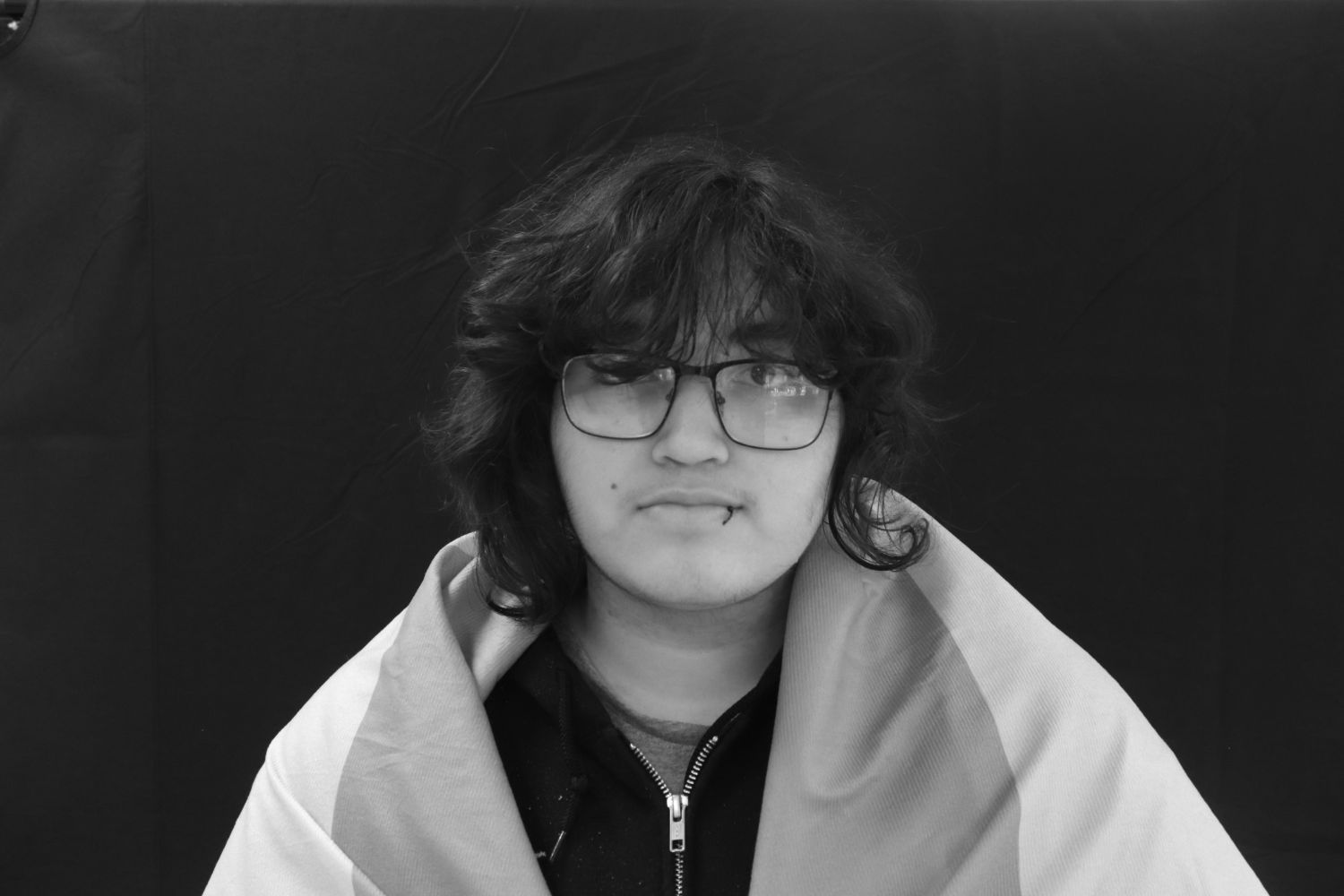We Are America
The Boy I Always Was
By Keithan

Granger High School, Granger, Washington
I am transgender and a queer teen, and have experienced transphobia and homophobia. I discovered myself to be queer in 2019, as it was something that I rarely saw in people around me. I questioned in previous years if I liked girls, in addition that I already liked boys. I thought it was strange that I also liked girls because I had never really known anyone personally who openly liked the same gender. While I did have relatives who were gay or lesbian, their experiences felt distant and unfamiliar to me. I felt detached, as if a gap of understanding and connection separated us, due to the massive age difference and the lack of a close relationship to speak freely. But from knowing I had relatives that were queer, I knew it was not as odd to be queer.
In March 2020, with a lot of time on my hands due to the global pandemic, I began to question my gender identity. I realized I didn’t feel like a girl at all—being referred to as, “she” or, “girl” felt completely uncomfortable. At first, I identified as non-binary, going by they/them pronouns and the name Max, because I didn’t yet know what it meant to be transgender. I only came out to my sister, as she was the only one I trusted, but my brother eventually found out and outed me to my mom, which was a horrible experience. When I came out, my mom told me, “There are only two genders; you are either a boy or a girl.” Her words cut deep. She didn’t accept who I was, and it hurt more than I can describe. Cisgender people—those whose gender identity matches the sex they were assigned at birth—might not see coming out to parents or family as a big deal, but for people like me, it is. It’s terrifying to face the possibility of rejection or judgment for simply being myself.
Later that year, I discovered the term transgender and finally began to understand myself. Being transgender means that the gender someone is assigned at birth doesn’t align with the gender they truly are or identify with. For many, it comes with gender dysphoria—the painful feeling of being trapped in a body that doesn’t reflect who they are. The more I learned about being transgender, the more it felt like the perfect label for me. I realized I would feel like I truly belonged if my friends and relatives could see me as a boy.
Puberty was a nightmare for me. I hated the changes it brought and the feminine parts of me that emerged. I wished I could have stayed the way I was before. I gravitated toward boys because I shared their interests, much like my brother’s—playing video games, exploring the outdoors, and diving into anything adventurous and hands-on. I was never the kid who played with dolls, dressed up, or pretended to be a princess. Being seen as a boy just felt right. It was during this time that I had a life-changing realization: I wasn’t trying to fit in with boys because I envied their lives or their freedom—I wanted to be one of them. It wasn’t just about sharing their interests or rejecting feminine roles; it was about finally understanding who I truly was. I wasn’t a girl who didn’t fit traditional expectations. I was a boy who had been misunderstood, even by myself, for so long.
This journey hasn’t been easy, but it has taught me resilience, self-love, and the importance of living authentically. I’ve learned that understanding and accepting myself is a powerful act of courage, even in the face of doubt and judgment. Moving forward, I want to focus on living fully and unapologetically, while offering the same support and compassion to others who are on their own journeys of self-discovery.
© Keithan. All rights reserved. If you are interested in quoting this story, contact the national team and we can put you in touch with the author’s teacher.